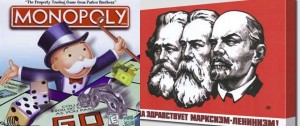James McKibbin
Activist Post
The political climate of this country is full of tension and anger. Whether one considers themselves to be on the left, right, or something else altogether, they are undoubtedly fed up with this current system. There is no better display of these emotions than the current Occupy movement, now spreading across the country and the whole world. This Saturday was the kickoff of Occupy Pittsburgh.
Being that I count myself among the fed up, I wanted to attend. The political ideologies represented at the Pittsburgh rallies and marches on Saturday were varied. Most people participating no longer trust either political party to represent them anymore. There was popular sentiment that corporations have now bought the vast majority of politicians and that corporate money needs to be barred from flowing into the campaign coffers of these politicians.
The above message I can agree with, but it is the other solutions that many Occupiers advocate that I strongly disagree with. It was my impression that a good majority of the protesters wanted higher taxes for the “rich”, more regulation of the economy with special emphasis on the banking sector, and more socialized programs like universal healthcare.
“The rich are hoarding all the wealth and must be forced to give it up and pay their fair share.” “Government needs to crack down on the banks and regulate them more because they are now allowed to gamble away peoples’ savings in the derivatives market with impunity.” “The greedy healthcare companies are raising the cost of healthcare and forcing the poor to go without, therefore they must be restrained or the government should provide all medical care.” Many of these same people were calling for an end to capitalism altogether.
But how do these individuals define capitalism? Most point to the current form of a state-regulated market economy and say that it does not work. They say capitalism has failed the average person and enriched the top 1%. Millions are unemployed, millions are on government assistance programs, and banks get bailed out while the people are sold out. Those that do have work are paid scraps while the “capitalist class” siphons off the surplus value they create for themselves.
If this is one’s view of capitalism then I cannot blame them for hating it. I hate it as well. But I would not call our current system capitalism. Quite the contrary; what we have now is a situation where the corporate and political power structures are so intertwined that they cannot survive without each other. However, this system is more accurately termed corporatism, mercantilism, or fascism.
In this system, the corporations get the regulations they want by buying off politicians with what are essentially bribes in the form of campaign contributions. Bureaucrats and politicians alike are given high paying jobs as rewards with the same corporations that they pushed the regulations through for.
A great example of this is Michael Taylor, the current Food Safety Czar under the Obama Administration. In the 1980s-90s, Taylor was a corporate lawyer and lobbyist for Monsanto, the notorious bio-tech giant responsible for Agent Orange, Roundup, most of the questionable genetically modified crops (GMO) in America, as well as the dangerous rBGH growth hormone given to cows to increase their milk output. He moved in and out of the FDA every few years pushing through necessary regulations to allow GMOs onto the market without any safety standards at all. He then became Monsanto’s vice president on public policy in 1998. Now he heads up food “safety.”
This guy epitomizes the revolving door of government and industry, which is the same no matter the department. The people in the regulatory agencies today are the executives of the corporations tomorrow. The Occupiers who naively want to give more power to these regulatory agencies are asking for the top 1% to further press the boot down on their necks.
Real capitalism would free the 99% from the authoritarian controls of the top 1%. In a free market, big companies would not give millions of dollars to politicians because there would be no benefit. The no-bid contracts, favorable regulations, tax loopholes, and subsidies that give big business the advantage over competitors would all disappear. There would finally be a level playing field so that small and medium sized businesses could compete more effectively, thus bringing better services overall to us, the consumers.
In the market, profits come from providing high quality goods and services at low prices, not from bribing the controllers of the public trough. The consumer is king and decides where their voting dollars will go. Reputation matters and companies will do what they can to keep them spotless. Innovation and creativity are unleashed for the benefit of all.
Capitalism is responsible for the relatively easy lifestyles we live today. Corporations, government, and the Federal Reserve have been ruining capitalism for generations and things have finally come to their inevitable destructive end. The choice now is not to overthrow “capitalism” and embrace socialism. The choice is to overthrow the corporatist/mercantilist/fascist system and embrace true free market capitalism where people are free to pursue prosperity and happiness in peaceful competition and cooperation.









